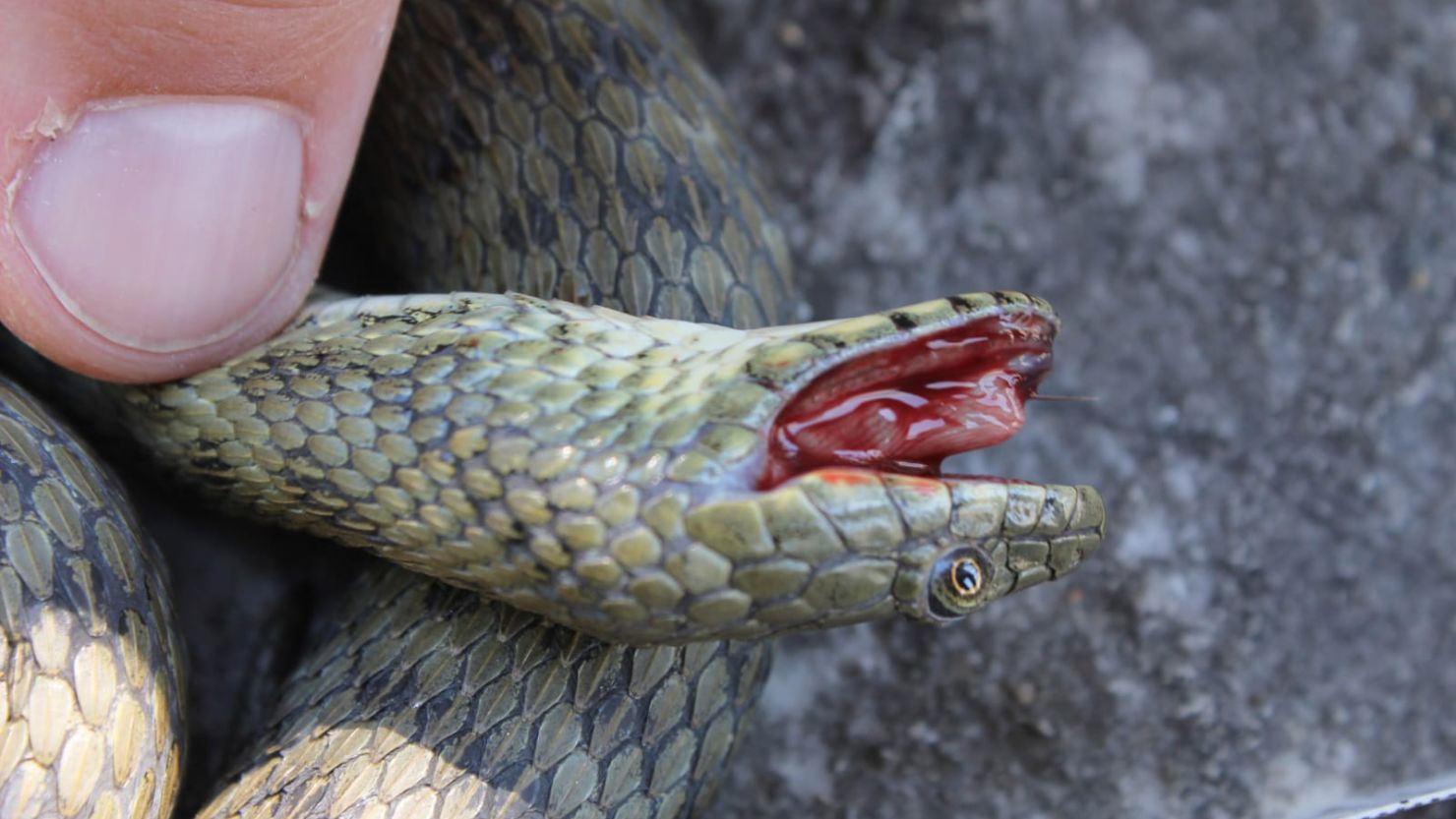The awards season may have concluded for human actors, but nature’s performers are still captivating audiences with their audacious acts of survival.
In a fascinating display of defense mechanisms, dice snakes have been observed faking their own deaths when confronted by predators. This theatrical performance includes smearing themselves with feces and even oozing blood from their mouths.
A recent study published in the journal Biology Letters shed light on this behavior, revealing that snakes employing these dramatic tactics spend less time feigning death and thus less time in perilous situations than those who don’t.
While many animals utilize death feigning as a defense strategy, the underlying mechanisms and effectiveness remain unclear. Some theories suggest it’s a conscious response, while others view it as an instinctual reaction to extreme stress.
To investigate further, researchers from the University of Belgrade conducted experiments on dice snakes in North Macedonia. They found that snakes employing more dramatic displays, such as bleeding from the mouth, spent less time playing dead on average.
Interestingly, not all snakes exhibited this behavior, with juveniles and newly hatched snakes showing less inclination towards feigning death, possibly due to the associated risks.
Factors such as temperature, sex, size, and previous experiences with predators can influence antipredator behavior. For instance, smearing feces may make the snake less palatable to predators, while bleeding from the mouth signals apparent death.
While this study provides valuable insights, further research is needed to understand the precise sequence of behaviors and their effectiveness in different species and environments. Nonetheless, these findings underscore the remarkable strategies employed by nature’s actors in the theater of survival.















































